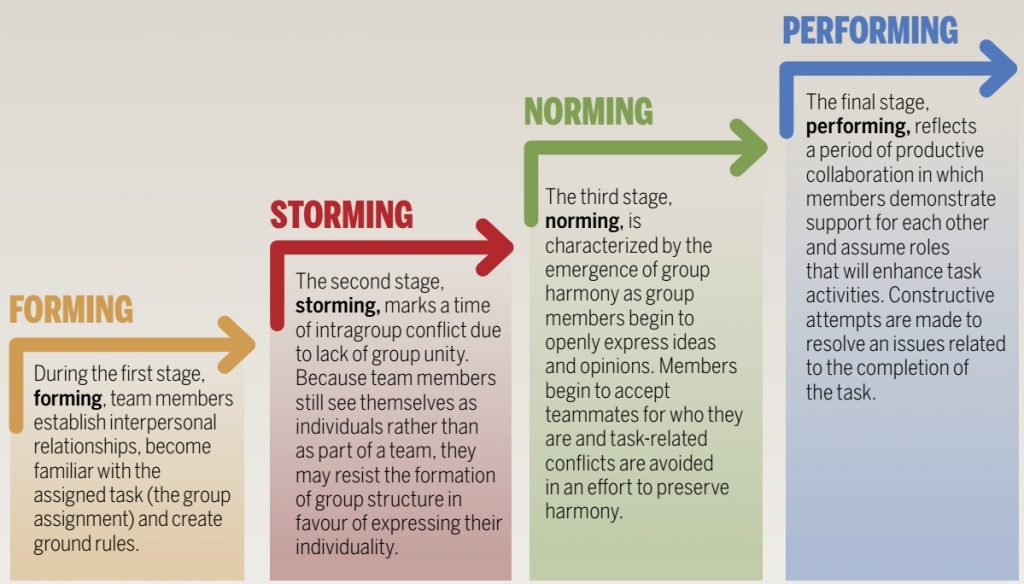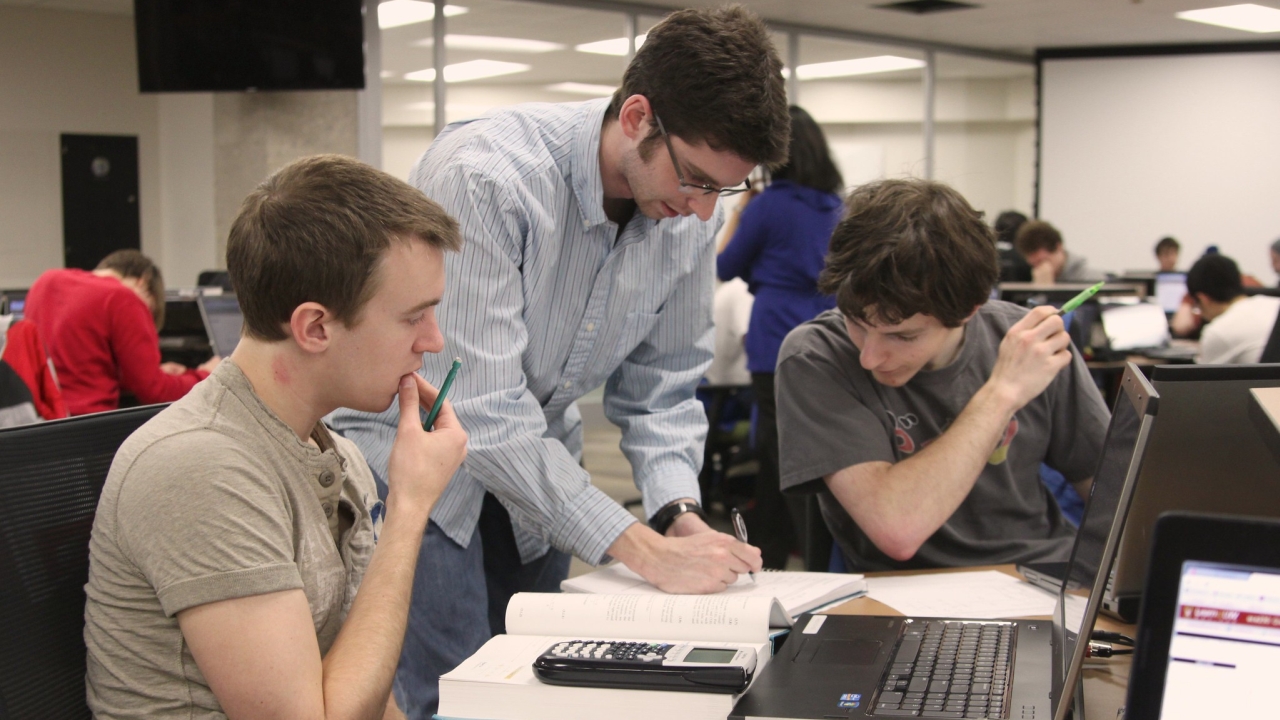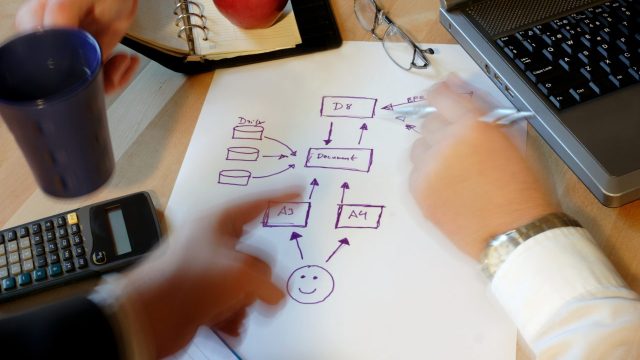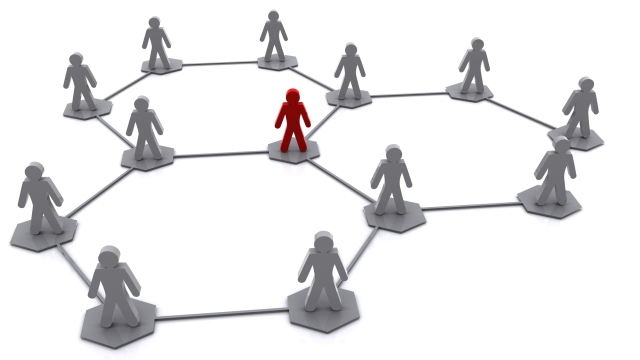
Insights into groups from recent research and perspectives
In the workplace, people are often brought together in groups for particular purposes or to perform particular functions. Group activities are also a fundamental aspect of learning environments.
Are you getting the most out of the groups in your workplace or learning environment? This article introduces some insights from recent research and perspectives.
Groupthink
In an article in Library Leadership & Management, Patricia F. Katopol discusses groupthink and its effect on decision making.
Selected characteristics of groupthink and what it looks like in the real world are:
- There is an illusion of invulnerability – as a group, we think we’re pretty great. We can take risks (risks that we shouldn’t take), because anything we do will work out.
- Warnings may be unheeded and assumptions about the situation may not be fully examined as there is collective rationalization.
- Have you ever been told not to ‘rock the boat’? With direct pressure on dissenters, members are under pressure not to express arguments against any of the group’s views.
- Information that is difficult, contrary to the group’s opinion, or apt to cause fragmentation is hidden by self-appointed ‘mindguards’ in order to keep the group intact.
Two forms of pressure that encourage groupthink are:
- Normative isomorphism: When people have similar educational and professional backgrounds, they tend to think the same way about problems.
- Social identity maintenance: The group is not just a collection of random people, but people whose identity is tied to being a member of the group. They have a positive image of the group and seek to retain that image in the face of threat.
Research suggests that it is better to focus on the communications process rather than group decisions. A good start is creating organizational environments where staff are not afraid to share opinions and management are not afraid to hear them.
Going from forming to performing
Writing in Western University’s Reflections publication, Aisha Haque outlines one theory of group dynamics to help illustrate the challenges groups face in coming together, and provides two strategies that can be implemented in regard to student groups to reduce these issues or even prevent them altogether.
The theory that Haque outlines is Bruce Tuckman’s four stages of group development: forming, storming, norming, and performing.
Bruce Tuckman’s model of group development
(Source: Aisha Haque)
The two strategies are:
- Ask your students to create a group contract to clarify group processes.
- Provide processes for team members to give each other consistent and structured feedback.
Multidisciplinary group meetings
A research paper authored by Kassianos et al.1 looks at health care professionals’ views on the implementation of multidisciplinary group meetings.
In 2011, a program of health and social care integration called The North West London Integrated Care Pilot was established. This large-scale program focused on developing new models of care planning and coordination for people with diabetes and people who are over 75 years of age.
With the aim of providing better and integrated care, the Integrated Care Pilot encompassed three main interventions: care planning, information sharing tools, and multidisciplinary group meetings. There were 16 multidisciplinary group meetings convening once every month. The main purposes of the multidisciplinary group meetings were to consider care plans for complex cases of patients and to reduce the number of hospitalisations.
The results were:
Participants mentioned a number of benefits of participating in the meetings, including shared learning and shared decision-making between different services and specialties. Yet, they perceived barriers that diminish the efficiency of the groups, such as time constraints, group dynamics and technicalities. The participants felt that the quality of discussions and facilitation could be improved, as well as technical arrangements that would make them easier to participate. Most of the participants perceived the groups to be beneficial for providers mostly questioning the benefits for patient care.
Acting in a group can change the effects of impairments and enhancements
The modern 24/7 lifestyle with its pressures and demands means that sleep deprivation is on the rise, as is the use of caffeine to counter the effects of sleep deprivation.
How do sleep deprivation and caffeine affect the performance of groups? Researchers investigated this2 using a framework that they developed, called GIE (effects of Grouping on Impairments and Enhancements).
They found that:
- The effect an impairment or enhancement has on individual level performance is not necessarily mirrored in group performance.
- We cannot readily generalise from group results on one impairment or enhancement to another.
The formation of social solidarity on groups
A PhD dissertation by Marek Possard3 proposes a theory to explain how actors rely on subtle features of social context when deciding whether to contribute resources to the group and punish their partners after they behave selfishly.
The research found that:
…subtle features of the relational context (i.e. perceptions of self and partners) affect the means by which actors promote collective action in groups, shaping the formation of social solidarity between group members.
References:
- Kassianos, A., Ignatowicz, A., Greenfield, G., Majeed, A., Car, J., & Pappas, Y. (2015). “Partners rather than just providers…”: A qualitative study on health care professionals’ views on implementation of multidisciplinary group meetings in the North West London Integrated Care Pilot. International journal of integrated care, 15(3). ↩
- Faber, N. S., Häusser, J. A., & Kerr, N. L. (2015). Sleep Deprivation Impairs and Caffeine Enhances My Performance, but Not Always Our Performance How Acting in a Group Can Change the Effects of Impairments and Enhancements. Personality and Social Psychology Review, 1088868315609487. ↩
- Posard, M. N. (2015). Identity Processes, Social Context, and the Formation of Social Solidarity in Groups. ↩
Also published on Medium.







